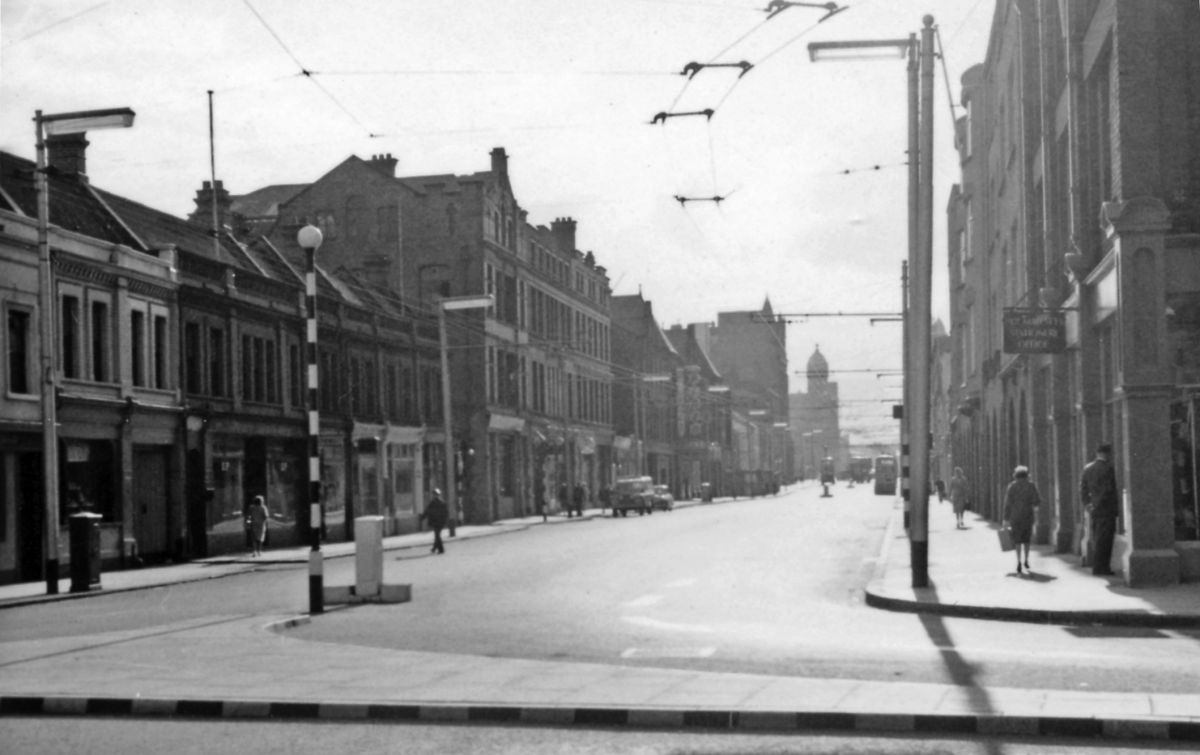Belfast: A love letter to childhood innocence

It’s not uncommon for filmmakers to look back to their childhood at some point in their career. Some of the world’s most acclaimed directors have shot autobiographical films over the last few years, from Alfonso Cuarón’s Roma and Paolo Sorrentino’s The Hand of God, to Steven Spielberg’s The Fabelmans, set for a 2022 release. It can be a way of reconnecting with their roots, or even a way to rediscover an authorial voice that became lost throughout their career. Kenneth Branagh’s Belfast is yet another example of such a project.
Shot in nostalgic black and white, the film is an invitation into 1969’s Belfast at the onset of the Troubles. Everything here is told through the eyes of Buddy, a 9-year-old Branagh-alike boy played by Jude Hill. Hereby, do not expect any in-depth political commentary or a vivisection of the problems that permeated Ireland’s society at the time. After all, Buddy is just a regular boy who lives on an idyllic street with his family.
The idyll stops as soon as Belfast sees the riots break out. Yet these events do not restrain the story from being fuelled by warm sentimentalism. You can’t hold back the sensation that actual danger is not to be found and that some sort of higher power is in control over the entire situation to ensure the family’s safety. Be it, perhaps, the relentlessness and confidence of both Ma (Caitríona Balfe) and Pa (Jamie Dornan), as they firmly face the changing landscape of the city.
The background events show the social issues becoming increasingly tense, as the pressure on the parents to decide whether or not to leave Belfast becomes the source of the primary narrative tension. In the eyes of Buddy, however, there’s not much he can change. Naturally, what the parents ultimately decide for the family is out of his control, and therefore this looming possibility of having to leave Belfast is somehow out of the foreground.
This is because Branagh does not pay attention to constructing a film overloaded with dramatic tension or one that relies heavily on storytelling, but rather he aims to paint a vague nostalgic picture. It’s not only an homage to his parents and grandparents, but also a search for the birth of his passion for art and cinema.
In a bold technical decision, the film gives up its black and white cinematography twice throughout the film, first when Buddy becomes enamoured by a theatre play, and second when they are sat watching a film in a cinema. Hardly a subtle choice but one that works seamlessly, highlighting the simple yet inspiring idea of art giving colour to a colourless life.
One thing Belfast really excels in is building the atmosphere of the period and the city. An impressive job was done by the film’s production designer Jim Clay, as the film was not shot on the streets of Belfast, but on a set constructed on a car park in Hampshire, England. The aim was not to create an exact replica of the old city, but rather “to create a world of fond memory of a family and its community caught up in troubled times, where singing and laughter could suddenly fill the streets as much as the Troubles”.
This line from Jim Clay is a perfect summarisation of Belfast as a whole; it never gives up on the uplifting notion that no matter how difficult the situation is, the problems can always be overcome by finding joy through friends and family. Is this a naive idea? To some degree yes, but in the case of this light-hearted and charming story, you accept it instinctively.
Belfast’s warmth and positive energy is simply irresistible. It might be merely an egotistical love letter to the director’s childhood, yet ultimately it is a joyous ode to ‘good old times’ and to the importance of strong family bonds. Above all, and despite its undeniable simplicity and technical flaws, Belfast is just as pure and innocent as its main character.
3/5.







